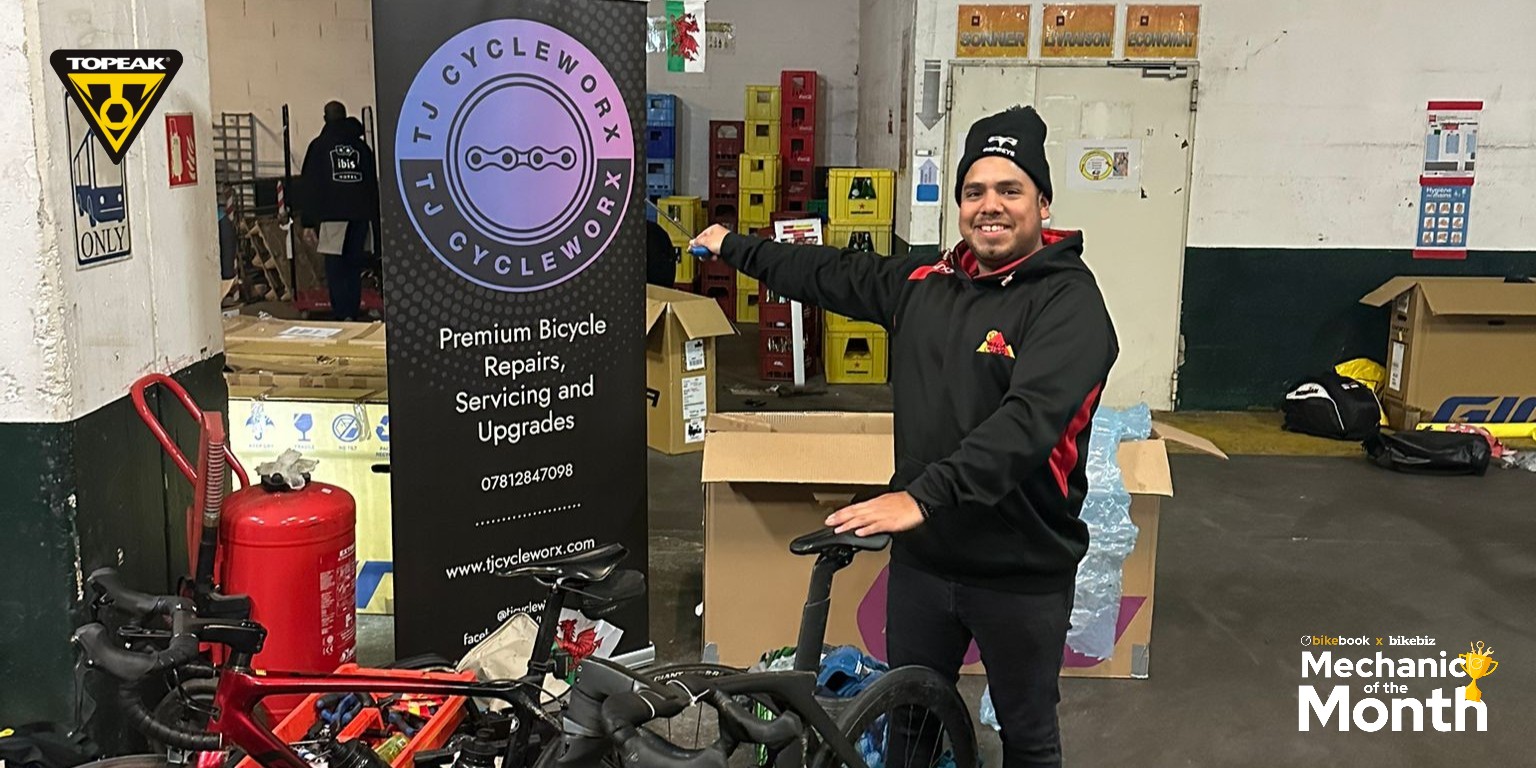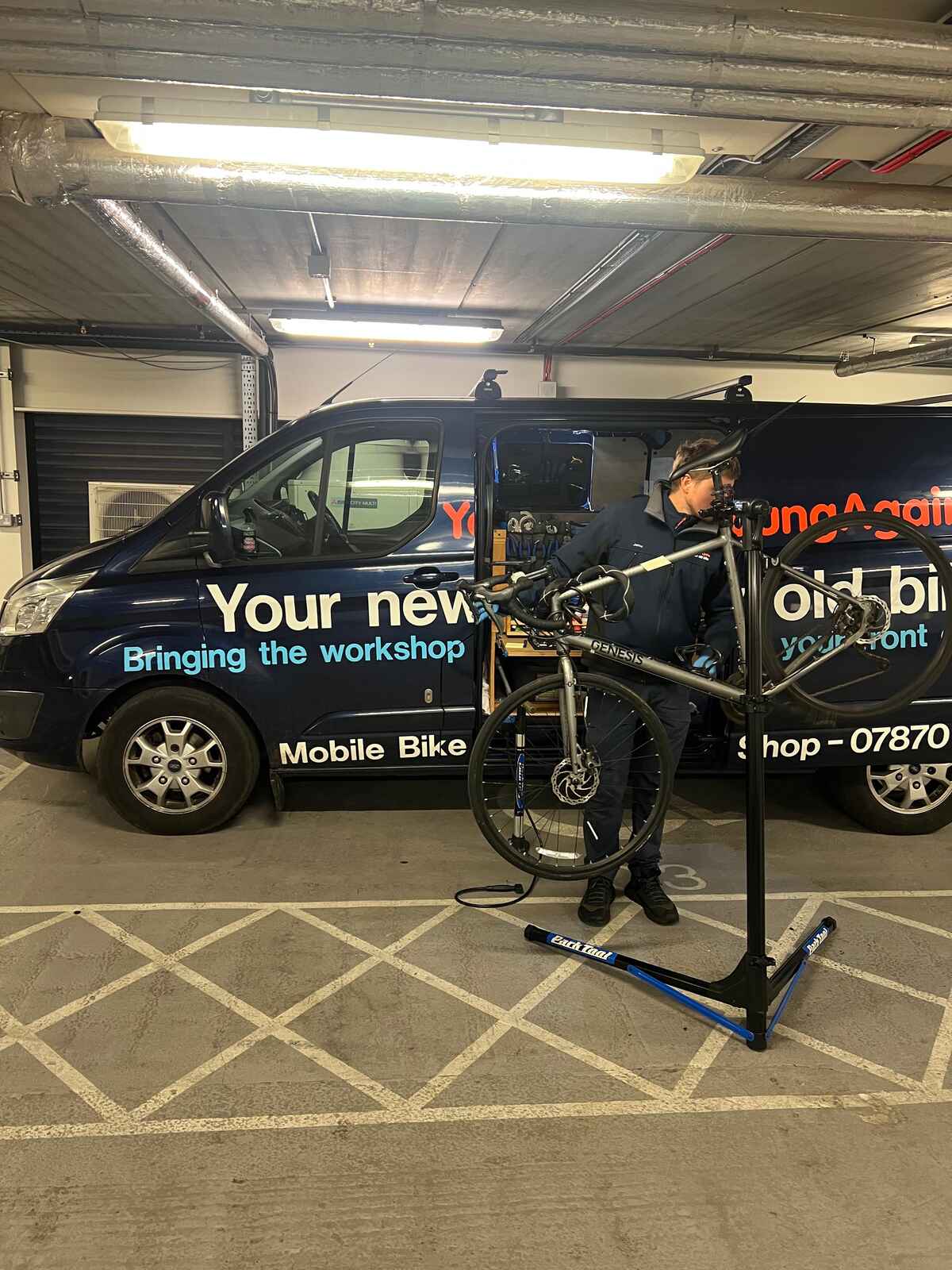January 7, 2026
•
5 minute read
Choosing the Right Mechanic: Tips for Finding Qualified Mechanics Based on Your Bike Type, Budget, and Location
Your bike is your trusty steed, your key to adventure, and your escape from the daily grind. But just like any machine, it needs regular care and maintenance to keep it running smoothly.
Ryan Elson
Founder & CMO
Your bike is your trusty steed, your key to adventure, and your escape from the daily grind. To keep it running smoothly, you need a skilled bike mechanic. These professionals are the unsung heroes of the cycling world, ensuring your rides are safe, smooth, and enjoyable. But with so many talented mechanics out there, how do you find the one who's the best fit for you and your bike? This guide will help you navigate the process.
1. Consider Your Bike Type
Bike mechanics often have areas of expertise that align with different types of bikes. Finding a mechanic who specializes in your type of bike can ensure you're getting the most knowledgeable service.
- Road Bikes: Look for mechanics who are well-versed in lightweight frames, aerodynamics, and high-performance components.
- Mountain Bikes: Seek out experts in suspension systems, disc brakes, and rugged frame materials.
- E-Bikes: As electric bikes grow in popularity, some mechanics have developed specific expertise in their unique electrical and mechanical systems.
- Vintage or Classic Bikes: Find a mechanic with knowledge of older parts and restoration techniques.
A mechanic who specializes in your type of bike will not only be efficient but also more likely to provide insights that can enhance your riding experience.
2. Understand Pricing and Services
Bike repairs and maintenance can vary in price depending on the service needed. Understanding typical price ranges can help you budget appropriately and appreciate the value of professional mechanical work.
- Routine Maintenance: Regular tune-ups (usually $50-$100) are a wise investment to keep your bike in top shape.
- Major Repairs: Be prepared for occasional larger expenses (e.g., $200-$500 for a full drivetrain replacement).
- Upgrades: If you're looking to improve your bike's performance, discuss cost-effective upgrades with your mechanic.
Remember, investing in quality maintenance performed by skilled professionals can save you money in the long run by preventing more serious issues.
3. Consider Location and Convenience
Choosing a conveniently located mechanic can make regular maintenance and unexpected repairs much easier to manage.
- Local Bike Shops: Supporting your community's bike shops helps build a strong local cycling culture.
- Mobile Services: Some mechanics now offer on-site repairs at your home or office, which can be incredibly convenient.
- Bike Co-ops: These community-oriented spaces often offer affordable repairs and can be great resources for learning about bike maintenance.
Think about how you'll transport your bike to the mechanic. If you don't have a car rack, a nearby shop might be your best option.
4. Seek Recommendations and Read Reviews
Word-of-mouth is a powerful tool in the cycling community. Experienced cyclists often have great insights about local mechanics.
- Ask Fellow Cyclists: Your riding buddies or local cycling clubs can be excellent sources of recommendations.
- Online Reviews: Check platforms like Yelp, Google, or cycling-specific forums for customer experiences.
- Social Media: Many cyclists share their experiences with local bike shops and mechanics on platforms like Instagram or Facebook.
Look for patterns in reviews that highlight a mechanic's expertise, professionalism, and quality of service.
5. Look for Certifications and Experience
While great mechanics can be self-taught, certifications and formal training can indicate a commitment to professional development.
- Professional Certifications: Some mechanics have certifications from organizations like the United Bicycle Institute (UBI) or Barnett Bicycle Institute.
- Brand-Specific Training: Some mechanics receive specialized training from major bike manufacturers.
- Years of Experience: Many mechanics have years of hands-on experience that make them true masters of their craft.
Don't hesitate to ask about a mechanic's background and how they stay updated on the latest bike technologies.
6. Observe the Shop's Equipment and Parts Selection
A well-equipped shop often indicates a mechanic's commitment to providing comprehensive service.
- Tools and Diagnostic Equipment: Modern bikes often require specialized tools. A well-stocked shop is a good sign.
- Parts Inventory: While no shop can stock everything, a good selection of quality parts means faster repairs and upgrades.
- Cleanliness and Organization: A tidy shop often indicates attention to detail and professionalism.
7. Communicate Clearly About Your Needs
When you visit a bike shop, be prepared to discuss your bike's issues or maintenance needs clearly. The more information you can provide, the better the mechanic can assist you.
- Describe any unusual sounds, feelings, or performance issues you've noticed.
- Mention your typical riding habits and conditions.
- Be open about your budget and priorities.
Clear communication helps the mechanic provide the most appropriate service for your needs.
8. Understand the Estimate
Before any work is done, a professional mechanic will typically provide an estimate. This helps ensure you're both on the same page about the expected work and costs.
- Detailed Breakdown: The estimate should include an itemized list of services and parts.
- Potential Additional Costs: Discuss what might change if additional issues are discovered during the repair.
- Warranty Information: Understand what's covered and for how long.
Don't hesitate to ask for clarification on any part of the estimate you don't understand. A good mechanic will be happy to explain their recommendations.
9. Build a Relationship with Your Mechanic
The best bike mechanics are partners in your cycling journey. They can help you keep your bike in top condition and offer valuable advice to enhance your riding experience.
- Regular Check-ins: Even if your bike isn't having issues, stopping by occasionally can help build a good relationship.
- Follow Their Advice: If they recommend preventative maintenance, it's often wise to consider it.
- Provide Feedback: Let them know how their work has improved your riding experience.
A good cyclist-mechanic relationship can lead to better service, occasional insider tips, and a more enjoyable cycling experience overall.
10. Trust in Professional Expertise
Remember that bike mechanics are skilled professionals who have dedicated themselves to mastering the intricacies of bicycle repair and maintenance. Their expertise keeps you safe on the road and trail, and enables you to get the most out of your cycling experience.
By following these guidelines, you can find a skilled bike mechanic who will keep your trusty steed running smoothly for years to come. A great mechanic doesn't just fix your bike; they enhance your entire cycling experience with their knowledge and craftsmanship.
Happy Cycling!



